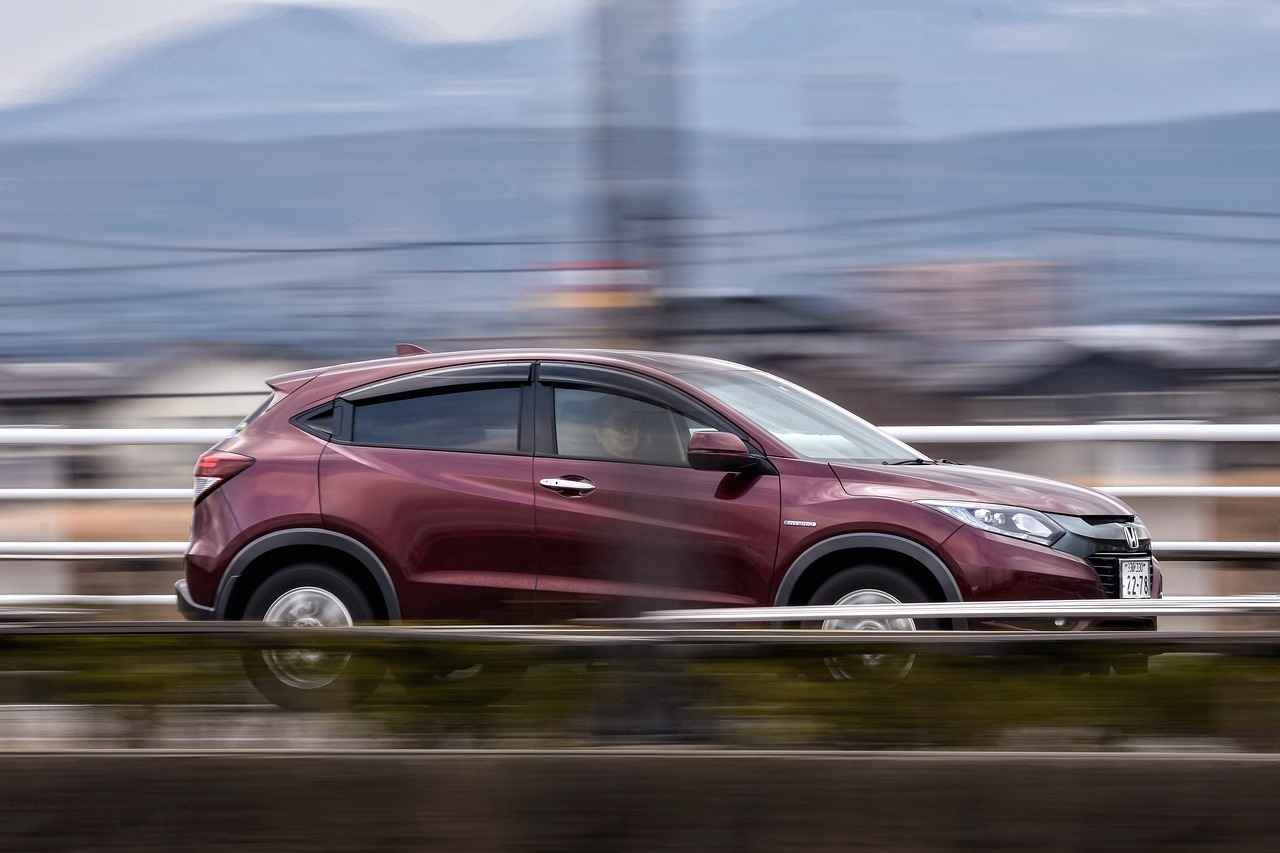The Honda Accord is a popular choice among midsize sedans, known for its reliability, performance, and comfort. However, many potential buyers often wonder, does the Honda Accord offer all-wheel drive (AWD)? In this article, we will explore the features of the Honda Accord, focusing on its drivetrain options and what they mean for you as a buyer.
All-wheel drive (AWD) is a drivetrain system that powers all four wheels of a vehicle simultaneously. This system enhances traction and stability, especially in challenging driving conditions such as rain, snow, or off-road scenarios. For many drivers, understanding the benefits of AWD is crucial when considering their next vehicle purchase.
Traditionally, the Honda Accord does not come with an all-wheel-drive option. Instead, it primarily features a front-wheel-drive (FWD) system, which is well-suited for most driving conditions. However, the absence of AWD may be a drawback for some buyers, particularly those living in areas with harsh winters or frequent inclement weather.
- Improved Traction: AWD provides enhanced grip on slippery surfaces, reducing the risk of skidding.
- Better Handling: Vehicles with AWD tend to handle better in adverse weather conditions, providing a more confident driving experience.
- Increased Stability: AWD systems distribute power to all four wheels, which can improve overall vehicle stability.
The Honda Accord’s FWD system offers commendable performance in most driving conditions, with excellent fuel efficiency and responsive handling. However, it may struggle in extreme weather compared to AWD vehicles. Understanding these limitations can help drivers make informed decisions based on their specific driving needs.
If AWD is a priority for you, there are several alternatives in the midsize sedan market. Vehicles such as the Toyota Camry, Subaru Legacy, and Nissan Altima offer AWD options, catering to buyers who require extra traction and stability.
Front-wheel drive (FWD) and all-wheel drive (AWD) systems have distinct differences. FWD vehicles, like the Honda Accord, typically offer better fuel efficiency and lower maintenance costs. In contrast, AWD vehicles provide superior traction and handling capabilities, especially in challenging conditions. Understanding these differences is essential for selecting the right drivetrain for your driving style.
The Honda Accord is packed with features that enhance comfort, safety, and technology. Key features include:
- Spacious Interior: Ample legroom and cargo space make it a great choice for families.
- Advanced Safety Features: The Accord comes equipped with Honda Sensing, a suite of safety technologies designed to keep you safe on the road.
- User-Friendly Technology: An intuitive infotainment system with smartphone integration enhances the driving experience.
Safety is a critical consideration for many buyers, and the Honda Accord consistently earns high safety ratings from organizations such as the National Highway Traffic Safety Administration (NHTSA) and the Insurance Institute for Highway Safety (IIHS). These ratings provide peace of mind for drivers and passengers alike.
Fuel efficiency can vary significantly between AWD and FWD vehicles. Generally, FWD vehicles, like the Honda Accord, offer better fuel economy due to their lighter weight and simpler drivetrain. Understanding these differences can help buyers make more economical choices when selecting a vehicle.
AWD systems can require different maintenance than FWD systems. Owners of AWD vehicles should be aware of potential costs associated with more complex drivetrain components, which may require more frequent servicing. Being informed about these considerations can help you budget for the future upkeep of your vehicle.
Before purchasing a Honda Accord, it’s essential to evaluate your driving needs, preferences, and budget. Consider factors such as climate, driving habits, and whether you prioritize fuel efficiency or enhanced traction. This assessment can guide you toward making the best choice for your lifestyle.

What is All-Wheel Drive (AWD)?
All-Wheel Drive (AWD) is a sophisticated drivetrain system designed to distribute power to all four wheels of a vehicle. This technology enhances traction and stability, making it particularly beneficial in varied driving conditions, such as rain, snow, or off-road scenarios. Understanding AWD is essential for potential buyers who want to make informed decisions about their vehicle choices.
AWD systems are engineered to automatically distribute power between the front and rear wheels, depending on the traction available. This means that when one wheel slips, the system can redirect power to the wheels with better grip, significantly improving control and handling.
There are two main types of AWD systems: full-time AWD and part-time AWD. Full-time AWD provides power to all wheels at all times, enhancing stability and traction in various conditions. In contrast, part-time AWD engages the rear wheels only when needed, which can improve fuel efficiency but may not offer the same level of control in slippery conditions.
For potential buyers, the benefits of AWD are numerous:
- Enhanced Traction: AWD vehicles excel on wet or icy roads, providing better grip compared to two-wheel-drive vehicles.
- Improved Stability: With power distributed to all four wheels, AWD systems help maintain vehicle stability during sharp turns and sudden maneuvers.
- Versatility: AWD vehicles are suitable for a variety of terrains, from city streets to rugged trails, making them ideal for adventurous drivers.
However, it is important to note that while AWD offers several advantages, it may not be necessary for everyone. Drivers who primarily navigate well-maintained urban roads may find that a front-wheel-drive (FWD) system suffices for their needs.
In summary, understanding All-Wheel Drive (AWD) is crucial for anyone considering a new vehicle. It provides significant benefits in terms of traction, stability, and versatility, particularly in challenging driving conditions. As you explore your options, consider how these features align with your driving habits and lifestyle.

Does the Honda Accord Offer AWD?
The Honda Accord is a well-respected name in the automotive industry, recognized for its blend of reliability, comfort, and performance. However, one question that often arises among potential buyers is whether the Accord offers an All-Wheel Drive (AWD) option. This inquiry is particularly relevant for those who live in regions with challenging weather conditions or who seek enhanced traction and stability while driving.
Traditionally, the Honda Accord has been equipped with a front-wheel-drive (FWD) system, which has served it well in terms of fuel efficiency and handling. While the Accord excels in many areas, it does not currently offer an AWD option. This absence may be disappointing for some buyers who prioritize the benefits that AWD provides.
AWD systems are designed to distribute power to all four wheels of a vehicle, which significantly improves traction on slippery surfaces like snow or ice. This feature is particularly advantageous for drivers who frequently encounter adverse weather conditions or rugged terrain. In contrast, the front-wheel-drive system of the Accord is optimized for smooth, paved roads, making it a reliable choice for everyday commuting.
- Improved traction: AWD vehicles offer enhanced grip on slippery roads, which is vital for safety during winter months.
- Better handling: AWD systems can improve handling during cornering and adverse weather conditions.
- Increased stability: With power distributed to all four wheels, AWD vehicles tend to be more stable during sudden maneuvers.
While the Honda Accord’s FWD system delivers commendable performance in most driving conditions, understanding its limitations compared to AWD can help drivers make informed decisions. For example, FWD vehicles may struggle in deep snow or on icy roads, where AWD systems would typically excel.
The Honda Accord is known for its smooth ride and responsive handling, making it an excellent choice for city driving and highway cruising. Its FWD configuration allows for efficient fuel consumption, which is a significant advantage for daily commuters. However, in challenging conditions such as heavy rain or snow, the lack of AWD may be felt.
Drivers in regions that experience severe winter weather might find themselves considering alternatives that offer AWD capabilities. While the Accord is a strong contender in terms of reliability and comfort, it may not meet the needs of those who require a vehicle that can handle more demanding conditions.
For buyers specifically looking for a midsize sedan with AWD, several alternatives are available:
- Toyota Camry: Offers an AWD option with similar reliability and performance.
- Subaru Legacy: Known for its standard AWD system, providing excellent traction and stability.
- Nissan Altima: Features an available AWD option that enhances its performance in various conditions.
Understanding the differences between front-wheel drive (FWD) and all-wheel drive (AWD) is crucial for potential buyers. FWD systems are typically lighter and more fuel-efficient, making them ideal for everyday driving. In contrast, AWD systems provide superior traction and stability, which can be beneficial in adverse weather conditions.
Ultimately, the choice between FWD and AWD will depend on individual driving needs, preferences, and the typical conditions in which the vehicle will be used.
Before deciding on a Honda Accord, it’s essential to evaluate your driving habits, the climate in your area, and your personal preferences. If you frequently drive in challenging weather conditions, considering alternatives with AWD might be wise. However, if you prioritize fuel efficiency and a comfortable ride, the Honda Accord remains a top contender in its class.

What Are the Benefits of All-Wheel Drive?
All-Wheel Drive (AWD) systems have become increasingly popular among drivers seeking enhanced performance and safety. Understanding the benefits of AWD can help consumers make informed decisions when purchasing a vehicle. This article will delve into the various advantages that AWD offers, particularly in terms of traction, handling, and stability.
- Improved Traction: One of the most significant advantages of AWD is its ability to provide improved traction on slippery surfaces. Whether driving on rain-soaked roads, icy paths, or unpaved terrains, AWD distributes power to all four wheels, allowing for better grip and control. This feature is especially beneficial during adverse weather conditions, where traditional two-wheel drive vehicles may struggle.
- Enhanced Handling: AWD systems also contribute to better handling during cornering and maneuvering. By engaging all four wheels, the vehicle can maintain a more stable trajectory, reducing the likelihood of skidding or losing control. This enhanced handling can boost driver confidence, making it easier to navigate challenging driving situations.
- Increased Stability: Stability is another crucial benefit of AWD. The system helps distribute weight evenly across the vehicle, which can significantly improve overall stability. This feature is particularly valuable when driving on uneven surfaces or during sudden changes in speed and direction.
- Versatility: AWD vehicles are versatile and can handle a variety of terrains, making them suitable for both urban and rural settings. Whether commuting through city streets or exploring off-road trails, AWD offers the flexibility to adapt to different driving conditions.
- Driver Confidence: The combination of improved traction, handling, and stability translates into increased driver confidence. Knowing that the vehicle can perform well in adverse conditions allows drivers to focus more on the road ahead rather than worrying about potential hazards.
While AWD offers numerous benefits, it is essential to consider the specific needs of each driver. For those living in regions with harsh winters or frequently encountering challenging driving conditions, an AWD vehicle may be a wise investment. However, it is also crucial to weigh the potential trade-offs, such as increased fuel consumption and maintenance costs associated with AWD systems.
In summary, the advantages of All-Wheel Drive systems are substantial, particularly for those who prioritize safety and performance in their driving experience. By providing improved traction, enhanced handling, and increased stability, AWD vehicles can significantly impact overall vehicle performance and driver confidence.

How Does the Honda Accord Perform in Different Conditions?
The performance of a vehicle is crucial for ensuring a safe and enjoyable driving experience. When it comes to the Honda Accord, its front-wheel-drive (FWD) system is designed to deliver reliable performance across a variety of driving conditions. However, it’s essential to understand both the advantages and limitations of this system compared to all-wheel drive (AWD) options available in the market.
The Honda Accord’s FWD system is engineered to provide excellent traction and stability under normal driving conditions. This system directs power to the front wheels, which helps with acceleration and handling, especially on dry and moderately wet surfaces. The weight distribution in a FWD vehicle also contributes to enhanced control during turns, making it a popular choice for many drivers.
While the Accord performs admirably in most scenarios, adverse weather conditions can present challenges. In rainy or snowy conditions, FWD vehicles may struggle compared to their AWD counterparts, which distribute power to all four wheels. This distribution improves traction on slippery surfaces, reducing the likelihood of slipping or losing control.
- Rain: In wet conditions, the Accord’s FWD can handle light rain effectively, but heavy downpours may lead to hydroplaning if the tires are not properly maintained.
- Snow: In snowy conditions, FWD offers better performance than rear-wheel drive, but AWD vehicles generally handle snow and ice more effectively.
One of the strengths of the Honda Accord’s FWD system is its ability to maintain stability during cornering. The front wheels are responsible for both steering and power delivery, which allows for a more engaging driving experience. However, during aggressive cornering, the front tires may experience increased wear and a tendency to understeer, especially when compared to AWD systems that can provide additional grip.
Another advantage of the FWD system is its impact on fuel efficiency. Generally, FWD vehicles, like the Honda Accord, are more fuel-efficient than AWD vehicles. This efficiency arises from the lighter weight and simpler drivetrain of FWD systems. For drivers who prioritize mileage, this can be a significant benefit.
Understanding the limitations of the Honda Accord’s FWD system is essential for prospective buyers. While it excels in many driving conditions, those who frequently encounter severe weather or challenging terrains may want to consider alternatives with AWD capabilities. Vehicles equipped with AWD can offer enhanced safety and performance in these scenarios, providing greater peace of mind.
In conclusion, the Honda Accord’s front-wheel-drive system offers commendable performance for everyday driving. However, recognizing its limitations in adverse conditions can empower drivers to make informed decisions. For those who prioritize versatility and enhanced traction, exploring AWD options may be worthwhile. Ultimately, the choice between FWD and AWD will depend on individual driving needs and preferences.

What Are the Alternatives to the Honda Accord with AWD?
If all-wheel drive (AWD) is a priority for your next vehicle, the midsize sedan market offers a variety of compelling alternatives to the Honda Accord. While the Accord is a well-regarded option known for its reliability and performance, it traditionally lacks an AWD configuration. Therefore, exploring other models that provide this feature can help buyers find a vehicle that aligns with their driving needs and preferences.
Choosing a vehicle with AWD can significantly enhance traction and stability in challenging driving conditions, such as rain, snow, or off-road scenarios. If these factors are essential to you, several alternatives to the Honda Accord can meet your expectations.
- Subaru Legacy: This sedan is renowned for its standard AWD across all trims, making it a top choice for those seeking enhanced stability. The Legacy also provides a comfortable interior and impressive safety ratings.
- Toyota Camry: The Camry offers an AWD option, which is relatively new to its lineup. This feature enhances its already strong reputation for reliability and fuel efficiency, making it an appealing choice for many buyers.
- Nissan Altima: The Altima features an available AWD system that is designed to improve traction and handling. With a stylish design and advanced technology features, it stands out in the midsize sedan category.
- Ford Fusion: Although production has ceased, used Ford Fusions with AWD are still available. They are known for their engaging driving experience and spacious interiors.
- Kia K5: The K5 has quickly gained popularity for its modern design and available AWD. It combines sporty performance with practicality, making it an attractive alternative.
When evaluating alternatives to the Honda Accord, consider the following factors:
- Performance: How does the vehicle handle in different weather conditions? Look for reviews and test drive options to assess performance.
- Fuel Efficiency: AWD vehicles can sometimes be less fuel-efficient than their front-wheel-drive counterparts. Check the EPA ratings for each model.
- Safety Ratings: Look for vehicles with high safety ratings, as this is crucial for peace of mind.
- Features: Assess the technology and comfort features available, as these can greatly enhance your driving experience.
While the Honda Accord is a fantastic midsize sedan, those prioritizing AWD have several viable alternatives. Models like the Subaru Legacy, Toyota Camry, and Nissan Altima offer impressive features and performance, making them worthy contenders. By considering your specific needs and preferences, you can find a vehicle that not only meets your expectations but also enhances your driving experience.

How Does Front-Wheel Drive Compare to All-Wheel Drive?
When it comes to choosing a vehicle, understanding the differences between Front-Wheel Drive (FWD) and All-Wheel Drive (AWD) is crucial for making an informed decision. These two drivetrain systems offer distinct advantages and disadvantages that can significantly impact your driving experience.
Front-Wheel Drive is a drivetrain layout where the engine’s power is delivered to the front wheels of the vehicle. This configuration is commonly found in many sedans and compact cars. One of the primary benefits of FWD is its fuel efficiency, as it typically weighs less than AWD systems and has fewer components. Additionally, FWD vehicles tend to offer better traction during acceleration, especially on dry roads.
All-Wheel Drive distributes power to all four wheels, enhancing traction and stability in various driving conditions. This system is particularly beneficial in adverse weather, such as rain, snow, or off-road scenarios. AWD can provide superior handling and control, making it a popular choice for drivers who frequently encounter challenging terrains.
| Feature | Front-Wheel Drive (FWD) | All-Wheel Drive (AWD) |
|---|---|---|
| Traction | Good on dry surfaces | Excellent on slippery surfaces |
| Fuel Efficiency | More fuel-efficient | Less fuel-efficient |
| Weight | Generally lighter | Heavier due to additional components |
| Cost | Lower initial cost | Higher initial cost |
The driving experience can vary significantly between FWD and AWD vehicles. FWD vehicles are often easier to handle and maneuver, making them suitable for everyday driving. However, they may struggle in severe weather conditions, where AWD shines by providing enhanced grip and stability.
Another important factor to consider is maintenance. FWD systems typically require less maintenance compared to AWD systems, which have more complex components and may require more frequent attention. Understanding these maintenance needs can help you budget effectively for your vehicle.
When considering the cost of ownership, FWD vehicles generally have a lower purchase price and better fuel economy. In contrast, while AWD vehicles may cost more upfront, their benefits in terms of safety and performance in challenging conditions can justify the investment for some buyers.
Ultimately, the choice between FWD and AWD depends on your driving habits and the conditions you typically encounter. If you live in an area with mild weather and prioritize fuel efficiency, FWD may be the better option. However, if you frequently drive in inclement weather or rugged terrain, investing in an AWD vehicle could enhance your driving experience and safety.
Understanding the fundamental differences between FWD and AWD allows you to make a more informed choice based on your needs. Whether you prioritize fuel efficiency, performance, or cost, knowing the advantages and drawbacks of each system is essential for selecting the right vehicle for your lifestyle.

What Are the Honda Accord’s Key Features?
The Honda Accord is a standout in the midsize sedan category, renowned for its blend of style, performance, and advanced technology. This vehicle is not just about getting from point A to point B; it is designed to enhance the overall driving experience. Below, we delve into the key features of the Honda Accord that make it a compelling choice for potential buyers.
- Spacious Interior: The Accord offers ample legroom and headroom, accommodating both front and rear passengers comfortably.
- High-Quality Materials: The interior is adorned with premium materials, providing a refined atmosphere.
- Climate Control: Dual-zone automatic climate control allows both the driver and passenger to set their preferred temperatures.
- Seating Options: Available leather-trimmed seats and power-adjustable front seats enhance comfort on long drives.
Safety is a top priority for the Honda Accord, which is equipped with a suite of advanced safety technologies:
- Honda Sensing Suite: This includes collision mitigation braking, road departure mitigation, adaptive cruise control, and lane-keeping assist.
- Advanced Airbag System: The Accord features multiple airbags strategically placed to protect passengers in the event of a collision.
- Rearview Camera: A multi-angle rearview camera assists in parking and reversing, enhancing visibility.
The Honda Accord is packed with cutting-edge technology that enhances convenience and connectivity:
- Infotainment System: A user-friendly touchscreen interface with Apple CarPlay and Android Auto integration allows seamless smartphone connectivity.
- Premium Audio System: An available 10-speaker premium audio system ensures an immersive listening experience.
- Navigation System: Optional built-in navigation provides real-time traffic updates and directions.
Under the hood, the Honda Accord delivers impressive performance:
- Engine Options: The Accord offers a choice between a turbocharged 1.5-liter engine and a more powerful 2.0-liter turbocharged engine for those seeking enhanced performance.
- Continuously Variable Transmission (CVT): The CVT provides smooth acceleration and improved fuel efficiency.
- Sport Mode: This feature allows drivers to engage a sportier driving experience with more responsive handling.
The Honda Accord is not only about performance but also about efficiency:
- Impressive MPG: The Accord achieves excellent fuel economy ratings, making it a cost-effective choice for daily commuting.
- Hybrid Option: For those looking for even greater efficiency, the Accord Hybrid offers a remarkable combination of power and fuel savings.
In summary, the Honda Accord combines comfort, safety, technology, and performance in a way that appeals to a wide range of drivers. Its thoughtful design and advanced features ensure that it remains a top contender in the midsize sedan market, providing excellent value for potential buyers.

What Are the Safety Ratings of the Honda Accord?
The Honda Accord has long been a favorite among car buyers, not only for its performance and reliability but also for its exceptional safety features. In today’s market, where safety is a paramount concern for many potential buyers, understanding the safety ratings of the Honda Accord can significantly influence purchasing decisions. This article delves into the safety ratings of the Honda Accord, highlighting its performance in crash tests, advanced safety technologies, and overall reputation for protecting drivers and passengers.
The Honda Accord is designed with a variety of advanced safety technologies that contribute to its high safety ratings. Features such as adaptive cruise control, lane-keeping assist, and collision mitigation braking are standard in many models. These systems work together to help prevent accidents and enhance driver awareness. The Accord’s robust construction and thoughtful engineering further bolster its safety credentials.
Organizations such as the National Highway Traffic Safety Administration (NHTSA) and the Insurance Institute for Highway Safety (IIHS) conduct rigorous crash tests to evaluate vehicle safety. The Honda Accord consistently receives high marks in these assessments. For instance, it has earned a 5-star overall safety rating from the NHTSA and has been awarded the IIHS Top Safety Pick+ designation in various model years, reflecting its superior crashworthiness and safety features.
- Honda Sensing Suite: This comprehensive suite includes features like adaptive cruise control, lane departure warning, and forward collision warning.
- Vehicle Stability Assist: This technology helps maintain control during challenging driving conditions.
- Multi-Angle Rearview Camera: This feature enhances visibility when reversing, helping to prevent accidents.
High safety ratings can lead to lower insurance premiums. Insurance companies often consider a vehicle’s safety performance when determining rates. Since the Honda Accord is recognized for its safety, owners may benefit from reduced insurance costs, making it an economical choice in the long run.
Real-world data supports the Honda Accord’s reputation for safety. Studies show that vehicles with high safety ratings, like the Accord, tend to have lower accident rates. Furthermore, the vehicle’s design minimizes injury risk in the event of a collision, which is crucial for families and safety-conscious buyers.
In the midsize sedan segment, the Honda Accord competes with several other vehicles, including the Toyota Camry and Nissan Altima. While all these vehicles offer commendable safety features, the Accord often edges out its competitors in safety ratings and available safety technology, making it a top choice for buyers prioritizing safety.
In summary, the Honda Accord stands out in the automotive market for its exceptional safety ratings and features. With its commitment to driver and passenger safety, it provides peace of mind for those behind the wheel. Buyers can feel confident knowing that the Honda Accord is not only a reliable sedan but also a safe one, making it a wise investment for families and individuals alike.

How Does Fuel Efficiency Compare Between AWD and FWD?
When considering the choice between All-Wheel Drive (AWD) and Front-Wheel Drive (FWD)fuel efficiency. Understanding how these two drivetrain systems compare can greatly influence your decision, especially if you are looking to make an economical choice.
Fuel efficiency refers to how far a vehicle can travel on a given amount of fuel. Generally, FWD vehicles tend to be more fuel-efficient than their AWD counterparts. This is largely due to the additional weight and complexity of AWD systems, which require more power to operate.
- Increased Weight: AWD systems add extra components such as a transfer case and additional drive shafts, which can increase the overall weight of the vehicle. This added weight can lead to decreased fuel efficiency.
- Power Distribution: In AWD vehicles, power is distributed to all four wheels, which can lead to higher fuel consumption compared to FWD vehicles, where power is primarily sent to the front wheels.
- Engine Load: The added complexity of an AWD system can place greater demands on the engine, resulting in higher fuel consumption during operation.
When comparing specific models, it’s essential to look at the miles per gallon (MPG) ratings. For instance, a typical FWD sedan may achieve around 30 MPG on the highway, while an AWD version of a similar vehicle might only reach about 25 MPG. This difference can accumulate significantly over time, impacting your overall fuel expenses.
It’s important to note that while FWD vehicles generally offer better fuel efficiency, the benefits of AWD become apparent in adverse weather conditions. AWD provides enhanced traction and stability, which can be crucial in rain, snow, or off-road situations. Therefore, buyers must weigh the importance of fuel efficiency against the need for improved handling and safety in challenging environments.
When choosing between AWD and FWD, consider your driving habits. If you frequently drive in harsh weather conditions or on rough terrain, the benefits of AWD may outweigh the disadvantages in fuel efficiency. Conversely, if you primarily drive in urban settings with good road conditions, a FWD vehicle may be the more economical choice.
As automotive technology continues to evolve, manufacturers are developing more efficient AWD systems that aim to minimize the fuel economy gap between AWD and FWD. Innovations such as electrification and advanced drivetrain technologies are paving the way for future vehicles that offer the best of both worlds.
In conclusion, understanding the differences in fuel efficiency between AWD and FWD vehicles is essential for making an informed purchasing decision. By considering your specific needs and driving conditions, you can choose a vehicle that balances performance, safety, and economical operation.

What Are the Maintenance Considerations for AWD Vehicles?
When considering the maintenance of All-Wheel Drive (AWD) vehicles, it is essential to recognize that they differ significantly from Front-Wheel Drive (FWD) systems. Understanding these differences can aid vehicle owners in budgeting for future maintenance and ensuring their vehicles operate optimally.
AWD systems, which distribute power to all four wheels, are designed to enhance traction and stability. However, this complexity comes with unique maintenance requirements. For instance, the additional components involved, such as differentials and transfer cases, often necessitate more frequent checks and servicing compared to simpler FWD systems.
One of the most crucial aspects of maintaining an AWD vehicle is ensuring that all fluids are at optimal levels. This includes:
- Transmission Fluid: AWD systems often require special transmission fluid to operate efficiently. Regular changes are vital for preventing wear and tear.
- Transfer Case Fluid: The transfer case is a critical component in AWD systems. It is essential to check and change the fluid to avoid costly repairs.
- Differential Fluid: Both front and rear differentials require fluid maintenance. Neglecting this can lead to severe mechanical issues.
Tire maintenance is another area where AWD vehicles require special attention. Because power is distributed to all four wheels, tire wear can occur unevenly. Regular tire rotations are essential to ensure even wear and prolong the life of the tires. Additionally, keeping tires properly inflated can enhance performance and fuel efficiency.
AWD vehicles often experience different braking dynamics compared to FWD vehicles. The added weight and complexity of the AWD system can lead to increased brake wear. Therefore, regular inspections of the brake pads and rotors are necessary to maintain safe driving conditions.
Due to the additional components and complexities involved in AWD systems, maintenance costs can be higher than those for FWD vehicles. Owners should prepare for potential expenses related to:
- Fluid Changes: More frequent fluid changes can lead to increased service bills.
- Component Replacement: Parts such as differentials and transfer cases can be expensive to replace if not properly maintained.
- Labor Costs: Specialized knowledge may be required for repairs, leading to higher labor costs at the mechanic.
While some maintenance tasks, such as tire rotations and fluid checks, can be performed by owners, others may require professional expertise. It is crucial to weigh the benefits of DIY maintenance against the risks of improper handling of complex AWD systems. Consulting with a qualified mechanic can provide peace of mind and ensure that maintenance is performed correctly.
In conclusion, understanding the maintenance considerations for AWD vehicles is crucial for owners looking to keep their vehicles in top condition. By being proactive about fluid changes, tire maintenance, and regular inspections, owners can avoid costly repairs and enjoy the benefits of their AWD systems for years to come. Awareness of these factors will not only help in budgeting for upkeep but also enhance the overall driving experience.

What Should You Consider Before Buying a Honda Accord?
When considering the purchase of a Honda Accord, it is vital to conduct a thorough evaluation of various factors that align with your individual driving needs, preferences, and budget. This assessment not only aids in making an informed decision but also ensures that the vehicle you choose complements your lifestyle.
Understanding your driving habits is crucial. Do you primarily drive in the city, or do you often take long trips on highways? If you frequently encounter adverse weather conditions such as rain or snow, you may want to consider how the Accord’s front-wheel-drive system performs in those situations. If you live in an area with harsh winters, you might need to prioritize vehicles with all-wheel drive (AWD) for better traction.
Your personal preferences play a significant role in your choice of vehicle. Consider the following:
- Comfort: Do you prefer a spacious interior with ample legroom?
- Technology: Are advanced tech features like infotainment systems and driver-assistance technologies important to you?
- Style: What design elements appeal to you in a car?
Understanding these preferences can help narrow down your options and ensure you find a vehicle that you will enjoy driving.
Your budget is a critical factor in any vehicle purchase. The Honda Accord is known for its affordability in terms of initial cost, but you should also consider:
- Fuel Efficiency: The Accord offers impressive fuel economy, which can lead to long-term savings.
- Insurance Costs: Research the average insurance rates for the Accord in your area.
- Maintenance and Repairs: Honda vehicles are generally reliable, but it’s wise to budget for routine maintenance.
Take the time to explore the key features of the Honda Accord. This includes:
- Engine Options: The Accord offers a variety of engine choices, including fuel-efficient hybrids.
- Safety Ratings: Check the latest safety ratings from reliable sources to ensure the Accord meets your safety standards.
- Technology: Look into the technology offerings, such as connectivity features and driver-assistance systems.
Once you have narrowed down your choices, it’s essential to test drive the Honda Accord. This experience allows you to assess:
- Driving Comfort: How does the vehicle feel on the road?
- Visibility: Is visibility adequate for your driving style?
- Noise Levels: How quiet is the cabin during your drive?
If the Honda Accord does not meet all your criteria, consider exploring alternatives. Many other midsize sedans offer AWD options and similar features. Researching these alternatives can provide you with a broader perspective and help you make the best decision.
In summary, before making a purchase, it is crucial to thoroughly assess your driving needs, preferences, and budget. This comprehensive evaluation will guide you toward selecting the right vehicle that fits seamlessly into your lifestyle.
Frequently Asked Questions
- Does the Honda Accord have all-wheel drive?
No, the Honda Accord traditionally does not offer an all-wheel-drive option. It primarily features a front-wheel-drive system, which is designed for efficiency and reliability.
- What are the advantages of all-wheel drive?
All-wheel drive enhances traction and stability, especially in slippery or adverse weather conditions. This can lead to better handling and increased driver confidence when navigating challenging terrains.
- How does the Honda Accord perform in different weather conditions?
The Accord’s front-wheel-drive system offers solid performance in most driving situations. However, while it handles well, it may not provide the same level of traction as an AWD system in severe weather.
- What are some alternatives to the Honda Accord with AWD?
If you’re specifically looking for AWD, consider options like the Subaru Legacy or Toyota Camry. These vehicles offer all-wheel drive while still providing the comfort and features you might expect in a midsize sedan.
- How do fuel efficiency and maintenance differ between AWD and FWD?
AWD vehicles often consume more fuel compared to front-wheel-drive models due to the added weight and complexity of the system. Additionally, maintenance for AWD can be more involved and costly, so it’s important to factor these aspects into your decision.



